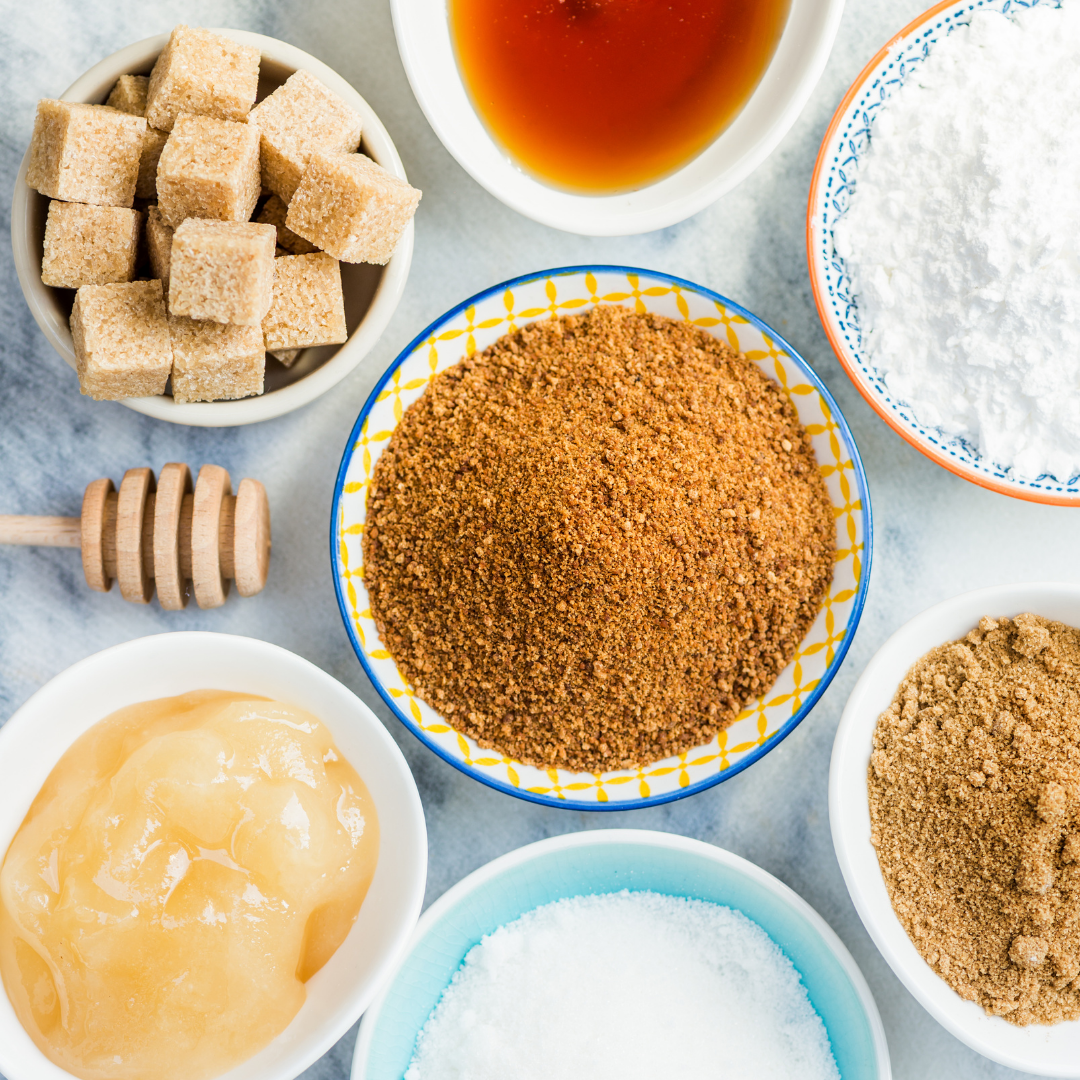
Top 5 Natural Sugar Substitutes for Baking
Share
Looking to cut back on sugar in your baking? We’ve got you covered.
An abundance of processed sugar in a diet can cause health problems, ranging from obesity to tooth decay and heart ailments. That's why it's a good idea to consider swapping for natural substitutes when possible without compromising flavor or the finished product.
There are lots of healthy, yet perfectly sweet natural sweeteners that can be easily swapped out in most of your baking recipes, all without compromising on the flavor. Scroll down to get your hands on 5 natural sugar substitutes for baking!
Honey
Honey is the most common replacement for sugar, especially when it comes to baking. It yields sweeter and denser baked goods while being slightly sweeter than white sugar. Some people replace sugar with equal amounts of honey, while some use only half the amounts of the delicious sweetener.
Honey is going to result in quicker browning and more moisture therefore you’ll need to reduce the liquid contents in your recipe. Honey has fewer calories as well as less glucose and fructose. Keep in mind diabetics are recommended to consume less honey.
The best idea is to replace every cup of sugar with a 3/4 cup of honey.
Maple Syrup or Maple Crystals
Maple syrup and maple crystals are marvelous sugar substitutes for baking as they are loaded with minerals, B Vitamins, and iron. Helping you maintain a healthy, heart, immune system, and reproductive system, maple syrup contains 50 percent each of fructose and glucose.
Use 3/4 cup of crystals or sugar for every cup of sugar and reducing liquids by 3-4 tablespoons. Lower the baking temperature by 25 degrees as maple syrup makes baked goods brown more quickly. You can use it for cinnamon toast, oatmeal, cookies, and more.
Molasses
Containing the highest levels of antioxidants in all-natural sweeteners, molasses contains an abundance of calcium, potassium, iron, copper, and B vitamins. It comes with a glycemic index of 55 which is fairly low and boasts a delicious flavor. Molasses comes with a gooey texture, and that's why it's recommended to use 1-1/3 cups of molasses for each cup of sugar in your recipes.
Also reduce the liquid contents to one-fourth, while reducing the baking temperature by 25 degrees. The dark color and distinct, slightly bitter flavor of molasses make it best for preparations like dark bread, cookies, and pies with fall fruits.
Agave Syrup
The Blue Agave cactus plant produces a delicious syrup that’s 1.4 times sweeter than most other natural sweeteners. The fact that it's not treated above 45 degrees when processed makes it a favorite among raw food enthusiasts.
When baking, go for raw agave, but be careful about the quantities as it may have more calories than white sugar. Go for two-thirds cups of agave for a cup of sugar, lowering the baking temperature by 25 degrees.
Also, reduce the liquid in your recipe by one-fourth of the regular since your baked treats will brown faster. Agave works best for preparations that call for little sweetener as it's very rich in fructose.
Stevia
Stevia is a great natural sweetener made from the leaves of a plant and is available in the form of granules, tablets, powder, and liquid. However, it's up to 300 times sweeter than sugar and must be used in a tiny amount when substituting it for sugar. It's calorie-free, doesn't lead to any tooth decay, and doesn’t alter your blood sugar levels.
Switch one cup of sugar with no more than a teaspoon of stevia, also reducing the baking temperature by one-fourth of the regular settings. Stevia won't add any food rise or texture, so you can increase baking powder or soda in your recipes.
